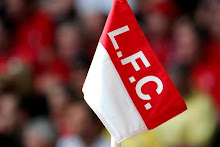
Bill Shankly, like virtually every English club manager of the 1960s, did not believe in signing players from overseas. It was an alien concept to the game at that time.
The legendary Liverpool manager’s teams consisted of many foreigners but they were not showboating Portuguese wingers cheating their way to league championships and European crowns. Instead they were home-grown English players to whom he added to his Scotch mix.
Like his future team mate Chris Lawler, central heating engineer Ian Callaghan trained at Melwood two nights a week with the junior sides before Shanks intervened and made plans to turn the young amateur into a fully fledged Liverpool player.
“He saw me playing in the junior sides and asked me if I would sign professional. I told him that I had an apprentice and that he would have to go down and see my mum and dad, which he did,” recalls Cally, Liverpool’s record appearance holder.
“He came down to the tenements where I lived (in Toxteth) in his big car and parked outside; I think it was a Ford Corsair. All the kids gathered round it because Bill Shankly was here. He came in, spoke to my parents and that’s how it all started really. I signed pro and it was the best thing I ever did.”
Callaghan’s progression through the ranks was rapid upon Shankly’s arrival and he made his debut, aged 17, in the 4-0 win over Bristol Rovers in April 1960 when he deputised for a Kop legend.
“I was playing in the A, B and C teams at Melwood. Then Mr Shankly arrived and I quickly started playing in the reserves but I didn’t play too many games for them. The next thing I knew it was coming to the end of the season in 1960 and I was in the team replacing the great Billy Liddell.”
Realising the potential of the young Callaghan, unlike managers in today’s game, Shankly chose to nurture that talent until midway through the promotion season of 1961-62.
“I think he saw me as a youngster who had just come into the game who needed to gain experience by playing in the reserves,” he said.
“In those days you had a big squad like they do now so you had a lot of older professional players playing in the reserves so you did get experience which was a learning period for me.”
Shankly described Callaghan as being “a real player” and “a fantastic man to have in your boots” and revealed that he never had a cross word although he did confess to have to curb the Toxteth-born midfielder’s tireless work ethic during training for fear of burning himself out.
“I loved training; I used to pinch myself every day going to Melwood and Anfield and when I was training with the lads,” Callaghan beamed.
“It was just a fantastic life getting paid to be a professional footballer but it got to the point where he would slow me down in training if we had a couple of games in the space of a week.”
Under the guidance of Shanks, and later his successor Bob Paisley, Callaghan lifted five League Championships, one Second Division title, two FA Cups, two UEFA Cups and one European Cup during his Anfield career as well as being part of England’s World Cup-winning squad of 1966.
Despite the Reds only lifting three major trophies during the swinging sixties, the football they played was captivating and one of their finest performances came in the first leg of the 1965 European Cup semi-final.
Inter Milan travelled to Anfield just four days after Shankly had led Liverpool to their first ever FA Cup triumph and Callaghan believes that of all the European nights the famous old ground has witnessed, the visit of Inter was the greatest in the club’s history.
“If I had to pick out a game at Anfield, it would be that,” he said.
“I was lucky enough to be playing in the St Etienne match in 1977 but I think the Inter match was better because it was on the back of winning the cup and coming back to Anfield.
“Gordon Milne, who didn’t make the final, and Gerry Byrne, who broke his collarbone, parading the cup around and the fans went wild.
“At that stage, Inter Milan had just become World Club Champions and on the night we hammered them 3-1. Chris Lawler scored a goal which was disallowed but we played really well on the night.”
Despite retiring in 1974, Shanks became an imposing figure at Melwood during the early days of Paisley’s tenure and Callaghan remembers the awkwardness of the whole situation as the great Scot was told to stay away from the club’s training base.
“Even after he’d retired, he was that sort of character that you still called ‘boss’. It was a bit embarrassing at the time because Bob was the boss but we still called him Bob instead of ‘boss’ and we were still referring to Mr Shankly as the boss so it was a bit funny really.”
Despite the difficult end to his association with Liverpool Football Club, Callaghan still holds an abiding memory of Shankly as being a second father to him throughout his career.
He added: “I think he became like a father figure. When he met my mum and dad he promised to look after me and he did.
“For all the time until he resigned really I never had a cross word with him. I never asked for a pay rise, he would always approach me and offer me a rise so he was like a father figure to me in a big way.”

